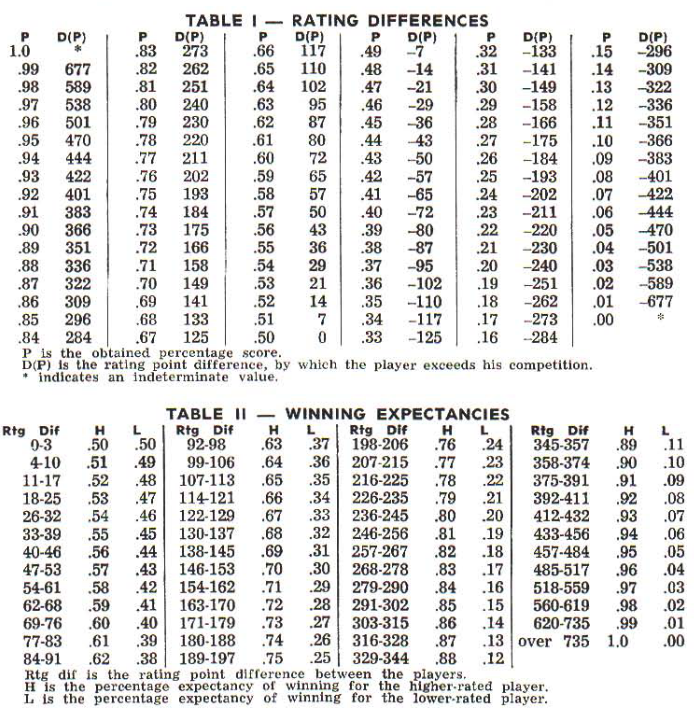These computations come very close to the boundary values in table II
p = seq(0.505,0.995,0.01)
elo = qnorm(p,0,2000/7)
[1] 3.580991 10.745225 17.916222 25.098525 32.296726 39.515488 46.759567
[8] 54.033836 61.343305 68.693152 76.088747 83.535685 91.039818 98.607295
[15] 106.244597 113.958590 121.756574 129.646340 137.636243 145.735273 153.953152
[22] 162.300428 170.788607 179.430290 188.239341 197.231093 206.422586 215.832865
[29] 225.483329 235.398180 245.604961 256.135247 267.025512 278.318251 290.063438
[36] 302.320462 315.160730 328.671252 342.959674 358.161554 374.451175 392.058231
[43] 411.294706 432.600539 456.626611 484.399346 517.688764 559.989710 620.025822
[50] 735.951230
The values in table I seem to be an average of those (rather than a direct computation with the quantile function).
There are some small discrepancies of the order of $\pm 1$ and that can be due to round-off errors and use of tables with lower precision.

